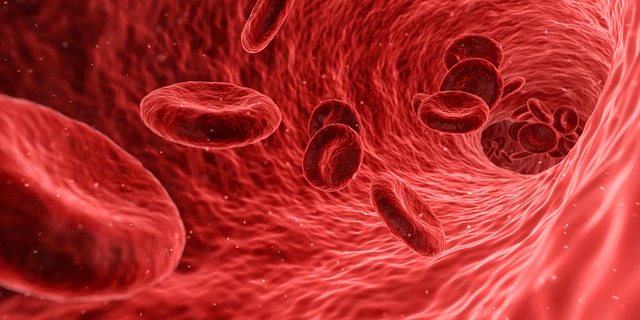Menopause & Heart Disease: Managing Your Risk of Heart Disease After Menopause
Throughout the years of life, a female’s body undergoes a number of changes, which are specific to a certain period of life. But the biggest changes that a woman can undergo come around either at puberty or at menopause. At both stages of life, the body is adjusting to a number of hormonal changes that have various impacts on physical health and other body systems.
At puberty, the body starts producing a lot of hormones in greater quantities, and at menopause, the opposite happens. Puberty comes with a lot of obvious physical changes in the body, while menopause doesn’t. Menopause, however, comes with a number of increased risks. From osteoporosis to breast cancer, menopause leaves a woman susceptible to a number of medical conditions, the most common ones being heart diseases.
How Does Menopause Affect The Heart?
In general, any female is at a much smaller risk of developing a heart disease as compared to men, but this is only valid until the female hits her menopause. After menopause, women are at a much higher risk of being affected by heart disease. And all of this is due to the hormone a woman’s body produces called estrogen. Estrogen plays multiple roles in a woman’s body and protects multiple parts ranging from the bones to the heart and even all the blood vessels.
During and after menopause, the amount of estrogen secreted by the body is marginally reduced. And the organs that were being protected and regulated by estrogen are at risk of being affected by various diseases, especially the heart and blood vessels.
Does Menopause Cause Heart Diseases?
We might have heard people saying that women develop heart diseases, or any other disease for that matter, because of menopause. But that is not entirely true. It’s essential for us to understand that menopause doesn’t itself become the cause of a disease. What it does is influence other factors that may increase the risk of heart diseases. So it is appropriate to say that a heart disease after menopause is due to increased risk factors, rather than the menopause itself.
What is also important for us to understand is that the risk of heart disease after menopause is not just increased, but increased marginally. A rough idea of how much the risk increases can be taken by the fact that one out of every three women develops a heart disease, following their menopause. Heart diseases are also the number one cause of death in females in America, making it a serious health risk.
How To Manage The Risks?
Knowing all the risks of heart diseases after menopause, the first question is, is it avoidable? It definitely is. As mentioned earlier, one out of three women is affected by a heart disease, not all three. The key to being the two that don’t fall in the red zone is precaution and mindfulness.
Awareness
What’s most important is to be aware of the risk that your body is at. You can’t avoid what you don’t know. So, first things first, you should be aware of all the risks that come with menopause, and how they may affect you.
Exercise Daily
Be it a man or woman, menopause or puberty, exercise has always been proven to do you good, and not in just one way. The right kind of exercises will keep your blood circulation well regulated and your heart in good shape. So even if you have never before been regular at exercising, it is never too late to start.
One of the best things that will definitely be of help to lower your risk of heart disease after menopause is to try fitting in a minimum of 2 and a half hours of exercise or any physical activity per week into your lifestyle. It is best divided into regular, quick exercises spread over the week rather than all scrunched up in a day, which won’t be good for your bones, which too need extra care after menopause.

Watch Your Diet
It is no secret that your diet will affect your body and can increase or decrease the risk of not only heart but a lot of other diseases depending upon what you eat or don’t eat. The importance of diet, therefore, in avoiding a heart disease after menopause cannot be understated. There are numerous guides available online that you can follow, which will tell you all you need to know about the perfect diet for a healthy heart. And if you’re not satisfied with that, you can consult a nutritionist, because who would know better?
Get Screened
No matter how watchful and mindful you are, the risk factor, even if the smallest bit, still exists. So it is important that you see where your health really stands. Get regular checkups and blood tests. A few parameters that are very important, as per the American Heart Association, include:
- Cholesterol – recommended to be tested after every five years
- Blood pressure – recommended to be checked after every two years
- Blood Glucose – recommended to be checked every three years
- Body Mass Index – recommended to be calculated during every one of your regular check-ups
Be Optimistic
Lastly, but most importantly, you have to keep a positive mind about the entire situation. Doing that can be of great help since menopause often brings with itself depression and anxiety both of which can be related to the hormonal changes going on in the body. And depression itself has been known to increase the risk of strokes, making optimism an important virtue in keeping yourself protected.

Happy Heart Is a Healthy Heart
In a nutshell, menopause will bring to your life a number of problems and difficulties. From dealing with depression to managing the increased risk of diseases, you will have a lot on your plate, but we should keep in mind that this is a natural physiological process of the body, and not as bad as it seems. The key is to have a positive attitude about it and know in your heart that you can deal with this. The rest will find its way.





